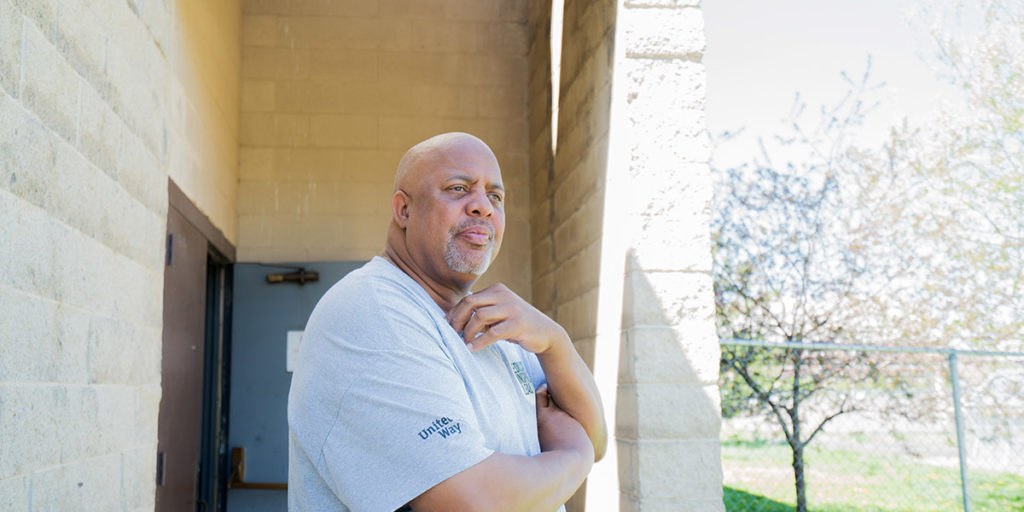
Nate Woods points to a grouping of framed photos on the wall.
“He’s going to graduate from high school this year, and she will too…” he said, moving his pointer finger from one photo to the next.
Nate is standing in a quiet hallway inside The Malone Center. In a few hours these halls will be filled with the sound of pattering feet and excited voices of the kids enrolled in the after school program. It’s this boisterous, controlled-chaos that is, by far, Nate’s favorite part of the day.
But other than the people who use the community center, Nate said, few people know much about the story behind the building and its programs. It’s a story that’s close to Nate’s heart, because his story is connected to the Center.
The Malone Center was started in 1955 as a way to strengthen the African American community and serve as a hub for educational, cultural and social programs for all people.
But its roots go deeper than its founding in 1955, and Nate Woods knows this because his grandfather, Millard Woods, was the original founder.
In the early ‘30s, Millard wanted a place for people of all races to gather. Nate described how back then there was still a high level of segregation that left colored people out of other social gathering spots. So, Millard started what he called the Urban League out of a yellow, two-story house.
The precursor to The Malone Center became the place to find information about jobs and schooling, but also a social hall with sewing clubs, dances and basketball games that filled the house with nearly constant energy.
Nate was only six years old when his grandfather passed away and is honest about the fact that he doesn’t remember much about him. He wasn’t around to experience the early years of The Malone Center, but Nate understands an important part of his grandfather’s story because of The Malone Center.
Nate has worked as the assistant director at The Malone Center for the last 13 years. He’s helped start numerous programs and watched as kids transition from preschool to high school. He’s like a dad to most of the kids there, he knows their names, interests, strengths and weaknesses. He’s the person parents call if they’re concerned about their kid.
Nate just gets kids and he know that matters, because not so many years ago he was one of those kids running around and shooting hoops in the gym.
While Nate lived on the west side of Lincoln, he remembers finally getting to the age when his mom would let him bike across town to The Malone Center. He’d shoot hoops with friends until it got dark and then he’d bike home.
It was his routine, his place, and that’s what Nate loves being able to give to the people who utilize The Malone Center today.
Nate loves his job. He said he wakes up every day, excited about the new challenges and surprises that await him. He knows that not everyone feels that way about their work, and he thinks it has something to do with living under his grandfather’s legacy.
Here’s the thing, Nate may not have known his grandfather very well, but the way he describes him – caring, kind, energetic – is the way so many people describe Nate. He walks around the Center joking with the maintenance guy and giving one of the preschool teachers a hard time, he’s fun to be around and that seems pretty special.
Nate points to one last picture on the wall.
“That’s my grandfather,” he said, looking intently at the painted picture.
“I think he’d be proud of this place.”
And for Nate Woods, that’s what matters.